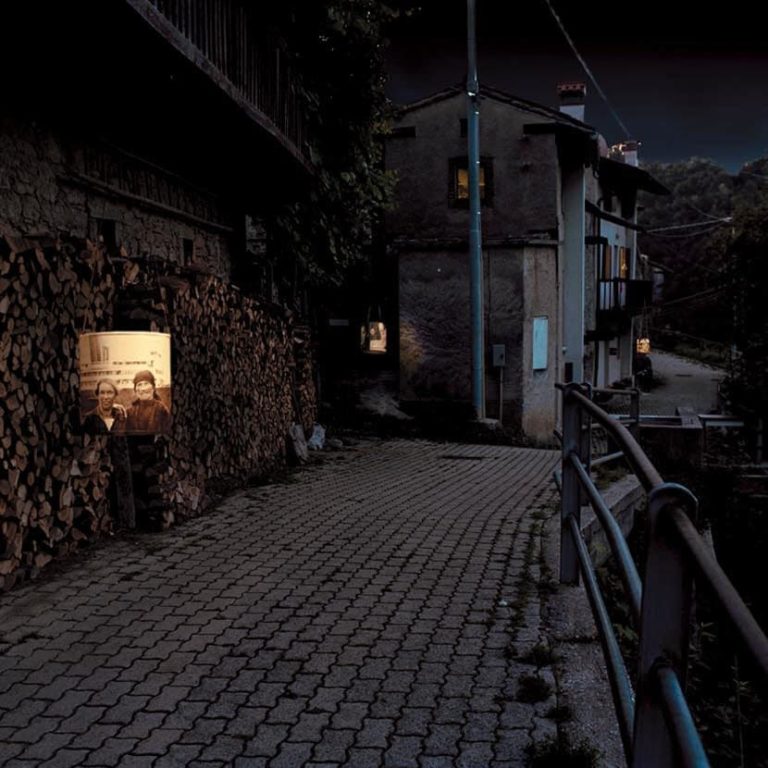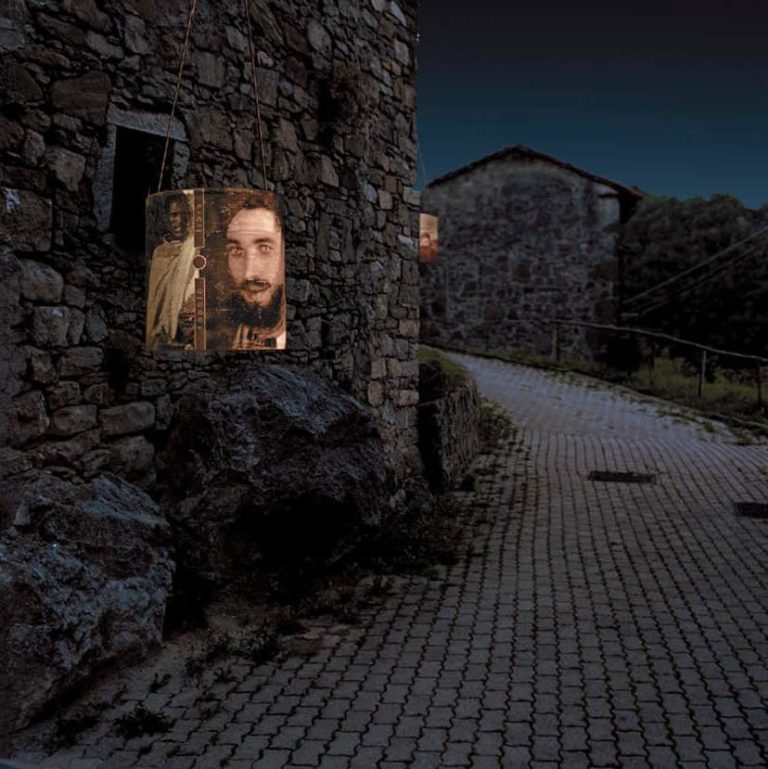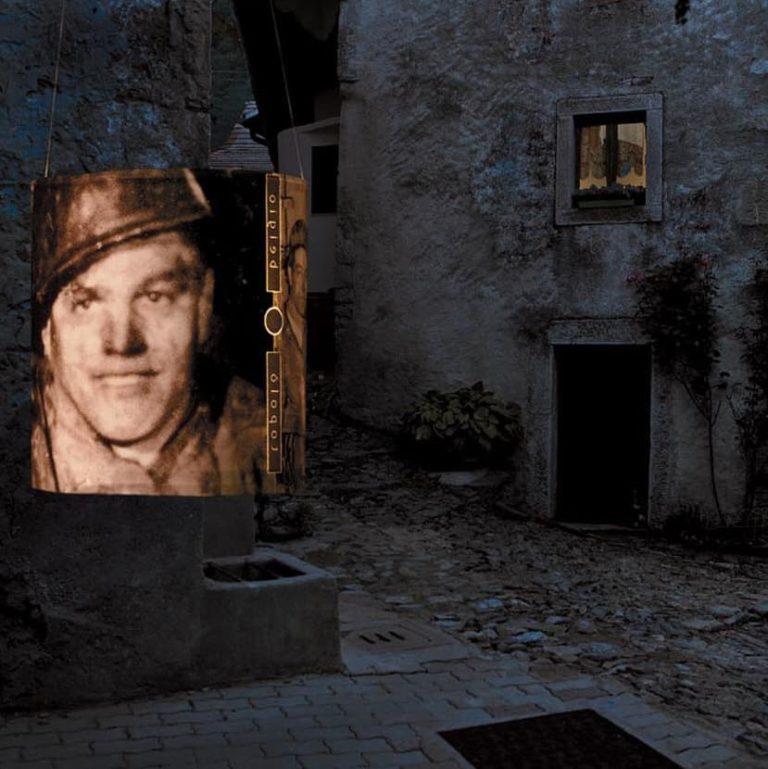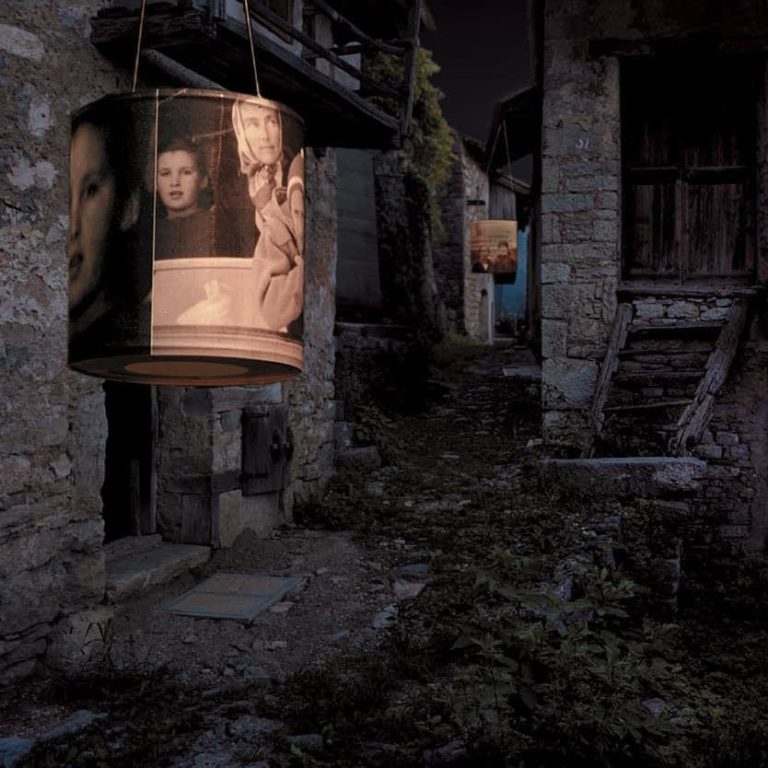Topolò is a small, mountain village in one of the poorest areas of Italy, located within walking distance of the Slovenian border. It is a village at the end of the road, yet history has never passed Topolò by. The village’s population has dwindled from some 400 at the beginning of the last century to just 42. Each year an arts festival – Stazione di Topolò – is held in the village.
Fuoco Fatuo – Will-o’-the-wisp – is a temporary installation comprising twenty lanterns suspended in and around the village in the unused spaces between the houses and barns.
One of the things that fascinated me about Topolò is the discrepancy between the extreme events that have happened there and and what remains of them. Migration began some 150 years ago. People left the village because there was no work or they hoped to find a better life elsewhere; to earn money and return to set up their own businesses; or simply to escape life in a small village and discover something of the rest of the world. They wrote home and returned with stories and souvenirs from far and wide. This resulted in an exchange between Topolò and the ‚world‘. Yet virtually no evidence of these events is visible.
I have discussed this subject with all the inhabitants of the village and their family photographs have been transformed into 20 lanterns. The role that these migrants have played in the history of the village was highlighted alongside the far-reaching influence of migration on a community.
Stazione di Topolò – Italy 7-22 July 2001
Inkjet prints, metal frame and candlelight
video of the installation



